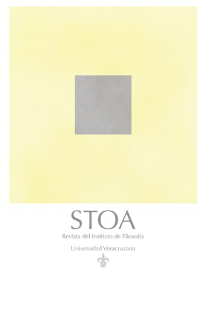Abstract
La familia representa un problema clave en la filosofía política moderna. En este artículo se examinan las principales claves filosóficas a partir de las cuales la Teoría Crítica buscó descifrar el significado de la familia en la sociedad capitalista. Siguiendo la herencia de Hegel y Marx, el estudio de la familia es abordado por esta tradición desde laperspectiva de una crítica dialéctica de la ideología. Esto supone evidenciar su significado para la reproducción de la dominación, así como las posibilidades utópicas latentes en la vida familiar.STOA is a biannual publication edited by the Institute of Philosophy of the Universidad Veracruzana, Tuxpan, No. 29, Frac. Veracruz, C.P. 91020, Xalapa, Ver., Tel. 8154285, http://www.uv.mx/filosofia. Responsible editor: Jesús Turiso Sebastián. Exclusive Use Rights Reservation No. 04-2008-121012511200-203, granted by the Copyright Reservation Directorate of the National Institute of Copyright of the Secretariat of Public Education, ISSN: 2007-1868. Responsible for the last modification of this issue: Jesús Turiso Sebastián, Tuxpan, No. 29, Frac. Veracruz, C.P. 91020, date of last modification August 5, 2011. Distribution and digital support by the Academic Software Development Department of the Universidad Veracruzana.
The opinions expressed by the authors do not necessarily reflect the position of the editor of the publication. Reproduction by any means of the texts published in this journal may be done as long as the source is cited, including the name of the author, the name and number of the journal, and its electronic address. For more information write to revistastoa@uv.mx.
Revista Stoa is a completely free publication, with no cost for processing or receiving articles and free access.
This work is under a Creative Commons Attribution-NonCommercial-ShareAlike 4.0 International license.


